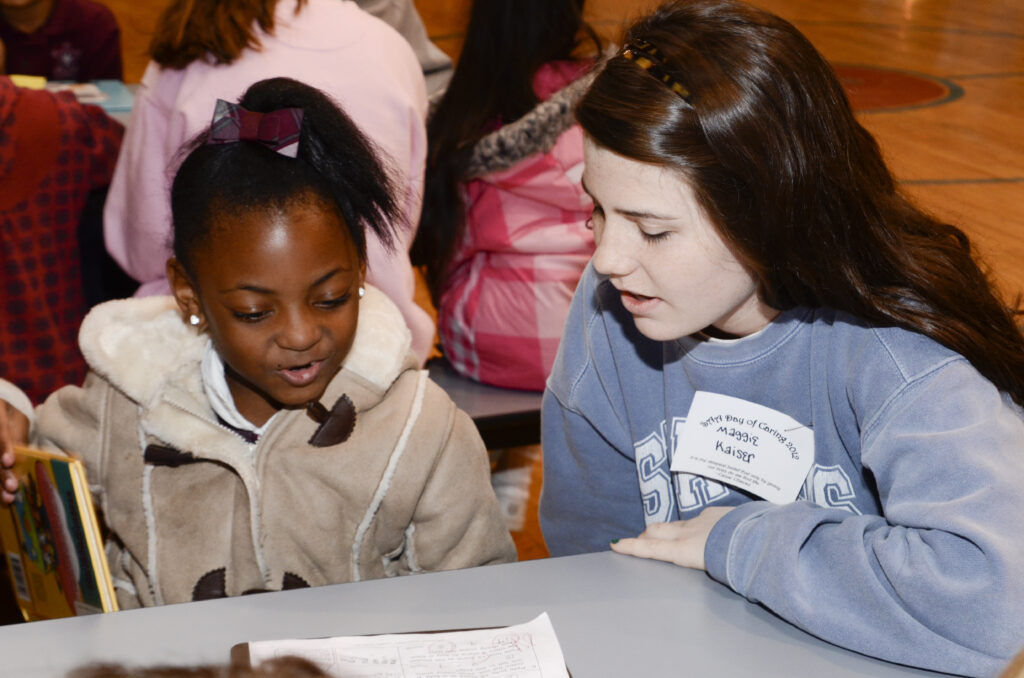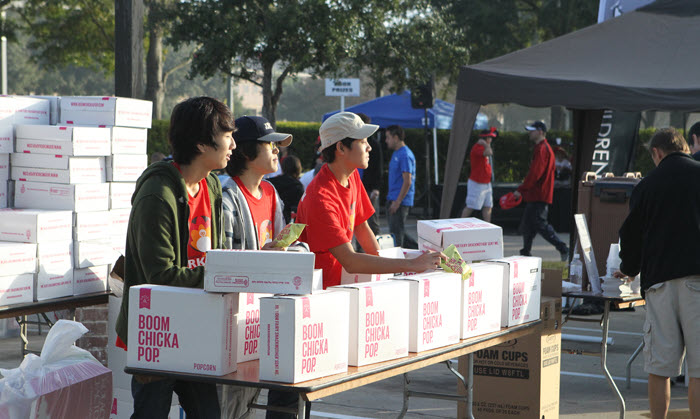By Michele Pitman
During the Coronavirus lockdown, most community service sites were off-limits, bringing volunteer options to a screeching halt and putting students who wanted to participate in community service at a standstill. Consequently, COVID-19 caused many students, parents, and school personnel to pause, adapt, and reimagine community service possibilities in real-time.
I’ve had a front-row seat throughout the pandemic, examining firsthand how schools have pivoted their service programs, because my company manages community service tracking for hundreds of schools across the country. Since the platform’s inception in 2008, I am proud to state that x2VOL has helped streamline volunteer experiences, successfully logging over 50 million hours of community service since its start.
For the majority of student volunteer hours completed during the pandemic, most were conducted in the home. Rather than working in a nursing home or the local homeless shelter, most learners transitioned to caregiving, delivering groceries to food banks and the elderly, sewing masks, tutoring, and providing in-house tech support, all the while adhering to social isolation mandates.

Now emerging from a post-pandemic world, we need to get students back outside and engaged in their communities as restrictions ease. Below are my thoughts about why community service is essential currently and how service has changed post-pandemic.
Activate altruism: Students aspire to improve their community
For the past 18 months, the Coronavirus pandemic and social isolation provoked anxiety and exasperated emotional fatigue across the globe. Yet, in the wake of the global crisis, providing service to others is a priceless way to heal from being hyper-alert to the pandemic’s peril. By taking the time to volunteer locally, our schools offer critical support for residents, building back a stronger sense of community.
Moreover, students who participate in community service have the opportunity to give back to those burdened by the crisis, inspiring learners to step up when society needs it most. Through service, students encounter the needs of specific populations, particularly those economically, medically, or socially disadvantaged.
Each year we work with schools, we find that reflecting on service helps students grow in greatness. When students document their experiences, they express concern for their community and discover a deeper meaning behind their work. When students ponder and write about their service commitment, they realize the profound significance of connecting with people in need, ultimately recognizing their responsibility in the world.
Community service: Advancing college and career applications
Volunteer work can open doors to higher education. While many disadvantaged and historically excluded students cannot control factors like their financial situation or first-generation status, they can spotlight their well-rounded character developed through community service on their college applications.
In several colleges and universities, a students’ community service work can present pathways to acceptance and, often, much-needed scholarships. To help highlight the significance of students working in their community, our company has created an Official Service Transcript™ that validates service time and showcases student reflections. A vital consideration of the students’ virtuous character, the Official Service Transcript™ can be transmitted directly to universities alongside academic transcripts.
Connecting with others through collective action
Community service offers volunteers an opportunity to look inward and connect to what matters most during an impressionable time of a young person’s life. Engaging in community service gives a keen sense of accomplishment, empowerment, and purpose which many young people carry into their choice of college and career.

Furthermore, community service instills confidence and a stronger identity for those who contribute their time. By meeting and networking with other volunteers, students socialize and bond over a common cause, build friendships, meet mentors, and form a solid support system that often stays with them into their adult lives.
Enhancing emotional intelligence and perseverance
Community service propels leadership, personal growth opportunities, and social-emotional learning. When students donate time, they develop compassion, strengthen their social awareness, and become more cognizant of inclusivity and equity initiatives. In addition, students who serve their communities learn about the world around them, broadening their perspective and point of view.
Students who volunteer can apply lessons from their schoolwork to real-world scenarios and improve several soft skills that are hard to come by, including communication, empathy, problem-solving, teamwork, and time management. Community service is also a continued commitment that requires time and effort, a practice many educators strive to provide for their students. Last but certainly not least, a lesson that is never lost on those who serve — witnessing how others have persevered despite hardship — can have a profound effect on young adults.
Verified records and validated service for college applications
A student’s participation in community service is an added advantage in any situation. Still, substandard practices of collecting community service hours are often disorganized, with no accountability or verification of the service work. Today, learners are still handing in crinkled pieces of paper to teachers and guidance counselors with scribbled notes and illegible signatures for volunteer credit.
During the pandemic, schools without a digital monitoring system faced the daunting task of determining if student service hours were even performed. x2VOL is a paperless platform that not only connects learners to community service opportunities but is also a method to approve, manage, and report community service commitments. In addition, to ease the process of higher education credentials for all involved, x2VOL’s Official Service Transcript™ can easily integrate into college and scholarship applications.
The Coronavirus pandemic has profoundly affected us all — changing perceptions regarding our roles in society and our overall view of the world. Students now are more willing to view small-scale, closer-to-home acts of humanity as valid and worthy forms of community service work.
Consequently, schools and colleges are also more apt to acknowledge that service need not be the most extensive or highly organized project to cause a charitable ripple effect in real-time. Shopping for an elderly neighbor, for example, is an act of kindness that should be acknowledged and recorded. The power of community service cannot be understated.
Lending a helping hand and assisting a neighbor in need fosters the mindset that we should all be considerate and care for those around us. Volunteering time to better the lives of others furthers the notion that even small acts of kindness can positively impact the people around us and leave a lasting impression to pay it forward.
About the author: Michele Pitman is founder and CEO of intelliVOL, developers of x2VOL which is the most widely used community service and service learning platform. She has committed herself to helping individuals and schools do more community service, not only as a path to college acceptance and scholarships, but primarily because of the great challenge many service organizations face in filling volunteer positions.


